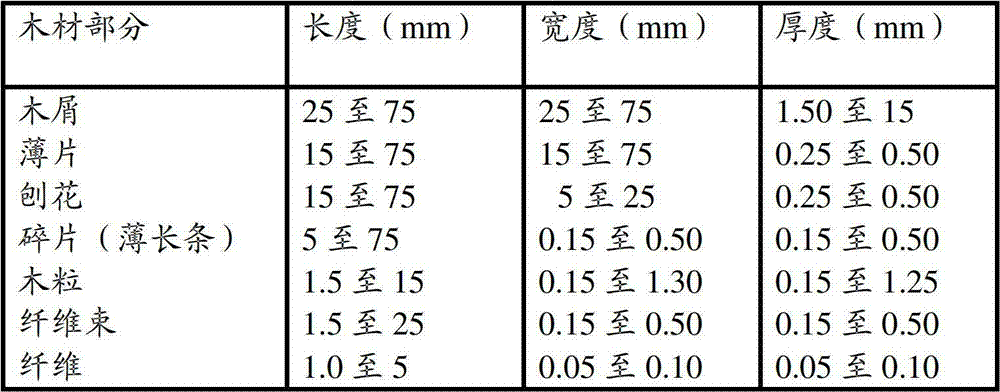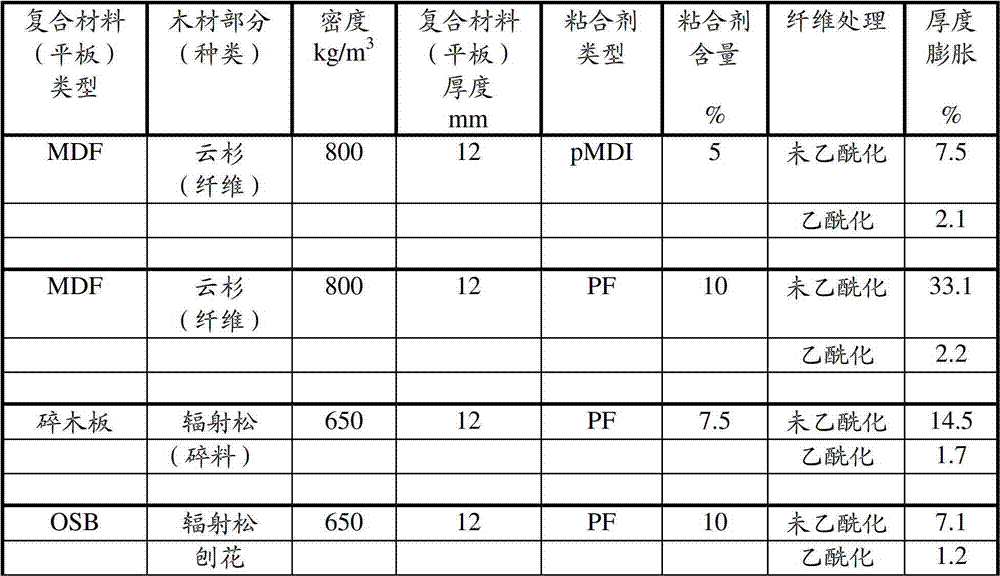Process for the acetylation of wood elements
A technology for acetylation, wood, applied in the field of acetylation for wood parts, which can solve problems such as poor durability
- Summary
- Abstract
- Description
- Claims
- Application Information
AI Technical Summary
Problems solved by technology
Method used
Image
Examples
Embodiment Construction
[0026] In an embodiment of the method of the invention, wood chips (approximately 40mm x 40mm x 10mm) originating from spruce and having a moisture content of 4 wt% to 10 wt% are placed in wire mesh walled baskets Medium (to allow easy passage of fluids) and placed in a pressure reactor. A vacuum of -0.95 bar was then applied to the chips for 5 minutes. Then, a preheated acetylation fluid at 130°C (comprising a mixture of 95% acetic anhydride and 5% acetic acid) was introduced into the reactor, which was subjected to a pressure of 10 bar for 10 minutes. The reactor was then drained and the wood chips were exposed to circulating nitrogen heated to 145°C for 60 minutes. During this part of the process, the pressure in the reactor may rise to 1 to 2 bar. After the pressure has been released, the acetylated wood chips are vacuum dried at -0.92 bar and cooled for 5 to 10 hours, usually 6-7 hours in total (ie drying and cooling). The level of acetylation was about 20% of the acet...
PUM
 Login to View More
Login to View More Abstract
Description
Claims
Application Information
 Login to View More
Login to View More - R&D
- Intellectual Property
- Life Sciences
- Materials
- Tech Scout
- Unparalleled Data Quality
- Higher Quality Content
- 60% Fewer Hallucinations
Browse by: Latest US Patents, China's latest patents, Technical Efficacy Thesaurus, Application Domain, Technology Topic, Popular Technical Reports.
© 2025 PatSnap. All rights reserved.Legal|Privacy policy|Modern Slavery Act Transparency Statement|Sitemap|About US| Contact US: help@patsnap.com



